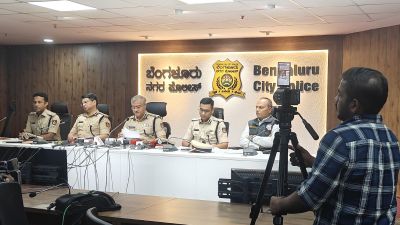MSCERT to prepare master guide for teaching in 50 local dialects
Guide to also aim to teach teachers to make the subjects more locally relevant.
 However, there are at least 50 dialects spoken locally and while it is not possible for us to prepare the material in all the dialects, but what is possible is to orient teachers to incorporate dialects into the syllabus.
However, there are at least 50 dialects spoken locally and while it is not possible for us to prepare the material in all the dialects, but what is possible is to orient teachers to incorporate dialects into the syllabus.
In a bid to promote learning through one’s spoken language which experts believe can help in aiding the learning process, the Maharashtra State Council of Education, Research and Training (MSCERT) is now embarking on a project to come up with a master guide to empower teachers for the same. MSCERT officials have recently prepared reading material in 10 predominant dialects spoken in Maharashtra i.e. Warli, Pawri, Bhilori, Nahali, Gondi, Kolami, Pardhan, Korku and Mavchi.
“However, there are at least 50 dialects spoken locally and while it is not possible for us to prepare the material in all the dialects, but what is possible is to orient teachers to incorporate dialects into the syllabus. Hence, for this purpose, we have decided to take the help of linguistic and education experts, especially teachers, from across the state and come up with a manual,” said Govind Nandede, director, MSCERT.
“This manual would not have any syllabus-related material, but would be a guide on how to teach. It is especially meant for training teachers from rural areas and they would be encouraged to learn and incorporate common words of a local dialect into their daily classroom teaching,” Nandede added.
MSCERT sources said that though the original plan was to come up with some reading material in all the dialects, but given the sheer volume of work, the idea was dropped. Now, a state-level meeting has been scheduled to come up with the guide to incorporate dialects into everyday teaching.
“While the earlier reading material is meant for students, this guide would be for teachers. It is for them to learn how to incorporate commonly spoken words of the local dialect. The purpose is simple since students sometimes find it difficult to follow the Marathi language. Hence, if teachers pepper it with a few local words, it makes explaining lessons and concepts easier and improves the understanding of students,” Nandede further said.
Linguistic concerns apart, the guide would also aim to teach teachers how to make the subjects more locally relevant. “It’s minor modifications to suit the local area, like, instead of giving the reference of a swimming pool to a child from a tribal area, mention a lake or pond where they are likely to have learnt to swim.
Or give the reference of a tourist area closest to them rather than giving examples of hill stations unknown to the students,” said a senior MSCERT official.
“These kinds of changes cannot be introduced in textbooks as it is not possible to change the textbook according to each region. Hence, a master guide for all teachers is being prepared on the importance of local dialects, why it is important to incorporate them and a list of commonly spoken words in each dialect,” the official added.







